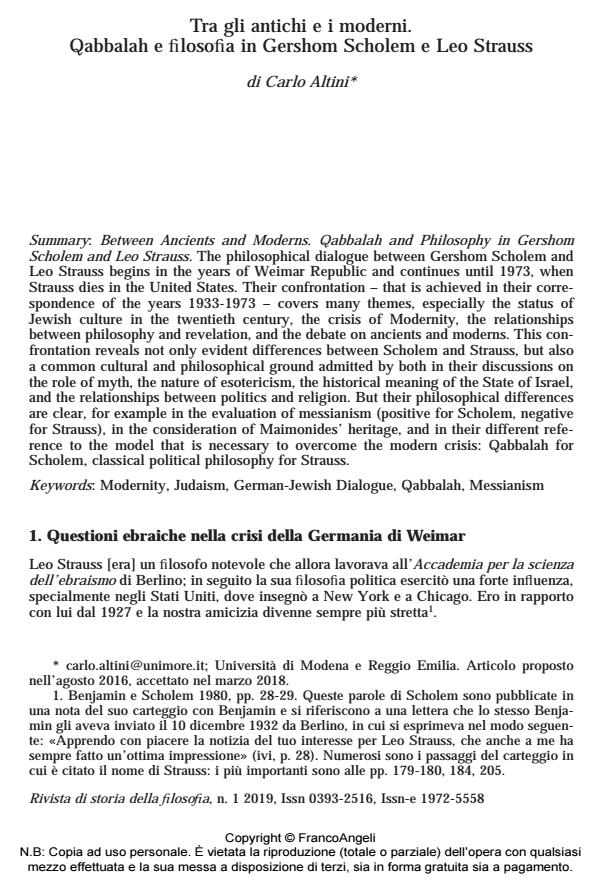Between Ancients and Moderns. Qabbalah and Philosophy in Gershom Scholem and Leo Strauss
Journal title RIVISTA DI STORIA DELLA FILOSOFIA
Author/s Carlo Altini
Publishing Year 2019 Issue 2019/1
Language Italian Pages 27 P. 59-85 File size 100 KB
DOI 10.3280/SF2019-001004
DOI is like a bar code for intellectual property: to have more infomation
click here
Below, you can see the article first page
If you want to buy this article in PDF format, you can do it, following the instructions to buy download credits

FrancoAngeli is member of Publishers International Linking Association, Inc (PILA), a not-for-profit association which run the CrossRef service enabling links to and from online scholarly content.
The philosophical dialogue between Gershom Scholem and Leo Strauss begins in the years of Weimar Republic and continues until 1973, when Strauss dies in the United States. Their confrontation - that is achieved in their correspondence of the years 1933-1973 - covers many themes, especially the status of Jewish culture in the twentieth century, the crisis of Modernity, the relationships between philosophy and revelation, and the debate on ancients and moderns. This confrontation reveals not only evident differences between Scholem and Strauss, but also a common cultural and philosophical ground admitted by both in their discussions on the role of myth, the nature of esotericism, the historical meaning of the State of Israel, and the relationships between politics and religion. But their philosophical differences are clear, for example in the evaluation of messianism (positive for Scholem, negative for Strauss), in the consideration of Maimonides’ heritage, and in their different reference to the model that is necessary to overcome the modern crisis: Qabbalah for Scholem, classical political philosophy for Strauss.
Keywords: Modernity, Judaism, German-Jewish Dialogue, Qabbalah, Messianism
Carlo Altini, Tra gli antichi e i moderni. Qabbalah e filosofia in Gershom Scholem e Leo Strauss in "RIVISTA DI STORIA DELLA FILOSOFIA" 1/2019, pp 59-85, DOI: 10.3280/SF2019-001004